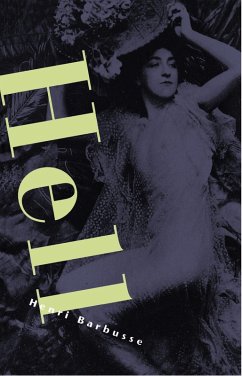"No one who has ever read this remarkable novel and looked at human life through Barbusse's peephole can ever forget the experience."-Robert Baldick
"It is Barbusse, not Gide, not Proust and not Malroux whose work marks the great turning point in French twentieth-century literature."-Jean Favrille
Hell is the most highly focused study of voyeurism ever written. A young man staying in a Paris boarding house finds a hole in the wall above his bed. Through this he obsessively studies the private moments and secret activities of his neighbors. Marriage, adultery, lesbianism, religion and death are all seen through this small spy hole.
Decades ahead of its time Hell shocked and scandalized the reviewing public when first released in English. Even so, The New Republic praised "the beauty of the book's nervous yet fluid rhythms. . . . Every simile is faultlessly keyed. The book sweeps away life's illusions."
"It is Barbusse, not Gide, not Proust and not Malroux whose work marks the great turning point in French twentieth-century literature."-Jean Favrille
Hell is the most highly focused study of voyeurism ever written. A young man staying in a Paris boarding house finds a hole in the wall above his bed. Through this he obsessively studies the private moments and secret activities of his neighbors. Marriage, adultery, lesbianism, religion and death are all seen through this small spy hole.
Decades ahead of its time Hell shocked and scandalized the reviewing public when first released in English. Even so, The New Republic praised "the beauty of the book's nervous yet fluid rhythms. . . . Every simile is faultlessly keyed. The book sweeps away life's illusions."
Dieser Download kann aus rechtlichen Gründen nur mit Rechnungsadresse in A, D ausgeliefert werden.

